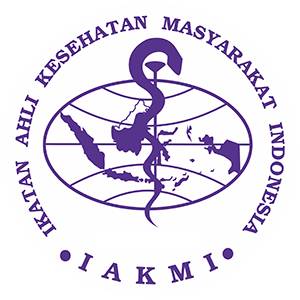DESCRIPTION OF SELF EFFICACY POST GROUP ACTIVITY THERAPY (TAK) IN PEOPLE WITH MENTAL DISORDERS IN THE GILINGAN PRIMARY HEALTHCARE
DOI:
https://doi.org/10.30787/gaster.v20i2.842Keywords:
ODGJ, self efficacy, TAKAbstract
Introduction :People with Mental Disorders (ODGJ) tends to increase, this is a concern to provide services. The implementation for ODGJ depends on several factors, one of which is self-efficacy. OGDJ who have high self-efficacy are expected to be able to make the right decisions according to the patient's condition, such as ability to take regular medication. By taking medication regularly, the signs and symptoms of ODGJ are under control. The purpose of this study was to determine the self-efficacy of ODGJ after group activity therapy. The method used is descriptive using cross sectional method. A total of 10 respondents were measured for their self-efficacy abilities and then performed a univariate analysis to see the self-efficacy scores. The results of this study showed that 60% of respondents had high self-efficacy. The conclusion is that most respondents have high self-efficacy after group activity therapy is carried out.
Â
References
Kaunang, I., Kanine, E., & Kallo, V. (2015). Hubungan Kepatuhan Minum Obat Dengan Prevalensi Kekambuhan Pada Pasien Skizofrenia Yang Berobat Jalan Di Ruang Poliklinik Jiwa Rumah Sakit Prof Dr. VL Ratumbuysang Manado. Jurnal Keperawatan, 3(2).
Naafi, A. M., Perwitasari, D. A., & Darmawan, E. (2016). Kepatuhan minum obat pasien rawat jalan skizofrenia di Rumah Sakit Jiwa Prof. DR. Soerojo Magelang. Kartika: Jurnal Ilmiah Farmasi, 4(2), 7–12.
Putri, D. P. K., & Lestari, S. (2016). Pembagian peran dalam rumah tangga pada pasangan suami istri Jawa. Jurnal Penelitian Humaniora, 16(1), 72–85.
Pratama, B. D., Widodo, A., & Kep, A. (2017). Hubungan Pengetahuan dengan Efikasi Diri pada Caregiver Keluarga Pasien Gangguan Jiwa di RSJD Dr. RM. Soedjarwadi. Universitas Muhammadiyah Surakarta.
Pangan, A., Data, D., Indonesia, F., Indonesia, F. H., & Medicine, A. (2012). Daftar pustaka (Vol. 29, Issue 5, pp. 19–20). https://doi.org/10.2307/257670.Poerwanto.
Retno Putri. 2017. Hubungan Antara Tingkat pendidikan dan Tingkat pengetahuan dengan Perilaku Hidup Sehat Kualitas Lingkungan Rumah (Studi Mayarakat Kabupaten Pringsewu, Kelurahan Pringsewu Barat). Universitas Lampung Fakultas Ilmu Sosial dan Ilmu Politik. Tidak dipublikasikan
Restiana, N., & Sulistian, F. (2017). Karakteristik Pasien yang Mengalami Gangguan Jiwa di Wilayah Kerja Puskesmas Tamansari. Jurnal Medika Cendikia, 4(02), 124–130.
Rinawati, F., & Alimansur, M. (2016). Analisa faktor-faktor penyebab gangguan jiwa menggunakan pendekatan model adaptasi stres stuart. Jurnal Ilmu Kesehatan, 5(1), 34–38.
Stuart, Gail W. (2013). Principles and Practice of Psychiatric Nursing 10th Ed. Canada. Mosby Elsevier
Sulastri, S., & Kartika, Y. (2016). Psikoedukasi Keluarga Meningkatkan Kepatuhan Minum Obat ODGJ di Puskesmas Kedaton Bandar Lampung. Jurnal Kesehatan, 7(2), 323–328.
Sutinah, S., & Maulani, M. (2017). Hubungan pendidikan, jenis kelamin dan status perkawinan dengan depresi pada lansia. Jurnal Endurance: Kajian Ilmiah Problema Kesehatan, 2(2), 209–216.
Undang-Undang Republik Indonesia No 18 Tahun 2014 tentang kesehatan jiwa diakses melalui http://yankes.kemkes.go.id/assets/downloads/UU%20No .%2018%20Th%202014%20ttg%20Kesehatan%20Jiwa.pdf
Wardana, B. K., & Suharto, S. (2017). Hubungan Pendidikan Dan Pengetahuan Peserta BPJS Di Kelurahan Rowosari Dengan Pemanfaatan Pelayanan Kesehatan Di Puskesmas Rowosari. Diponegoro University.
Wardana, B. K., & Suharto, S. (2017). Hubungan Pendidikan Dan Pengetahuan Peserta BPJS Di Kelurahan Rowosari Dengan Pemanfaatan Pelayanan Kesehatan Di Puskesmas Rowosari. Diponegoro University.













